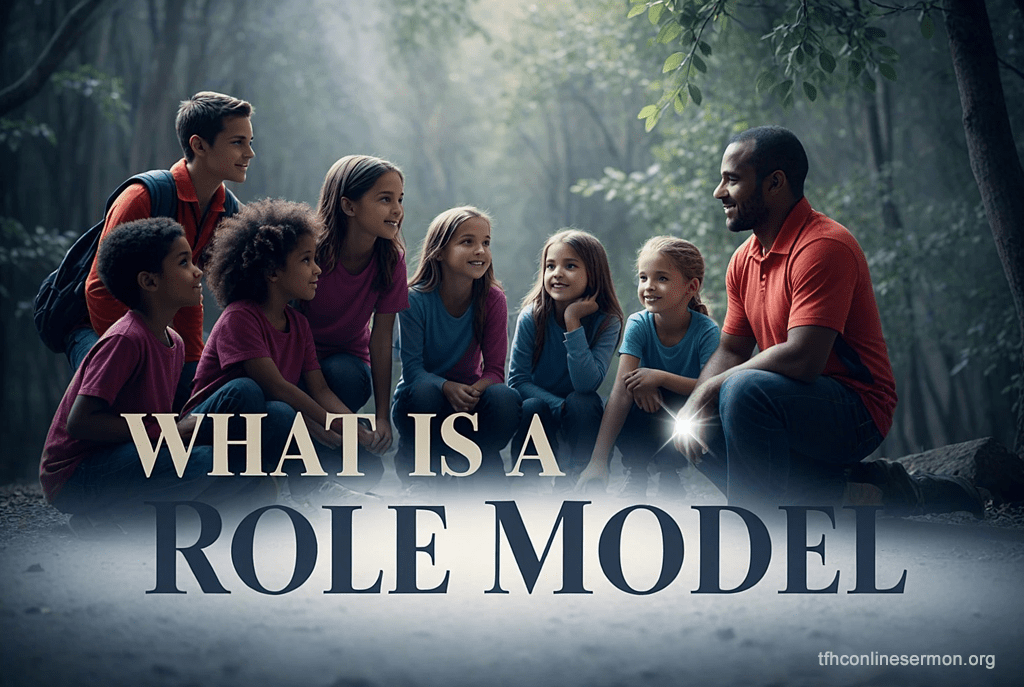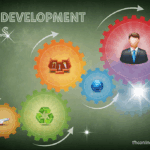
Have you ever wondered, what do you call someone who is a role model? A role model is someone who sets an example for others to follow. He is also a mentor, leader, or influencer. They inspire through their actions, attitudes, and values, encouraging people to strive for their best.
Role models can come from all walks of life—they may be parents, teachers, leaders, or even fictional characters.
What Is A Role Model: Definition, Meaning, and Examples
But what is the definition of a role model? This can be defined as is a person whose behavior serves as a guide for others. They embody qualities that we admire and wish to develop in ourselves. Role models don’t need to be perfect; instead, they are individuals who teach us valuable lessons, often through their resilience, kindness, and integrity.
Understanding what a role model is helps us see how they impact our lives and inspire positive change.
In this message, we’ll explore examples of role models, their significance, and how we can choose one wisely.
What Is the Meaning of a Role Model?
The term “what is the meaning of a role model” often refers to someone who influences others in a positive way. He guides through their behavior, work ethic, or outlook on life. They serve as a beacon of inspiration, showing us what is possible and encouraging us to reach greater heights.
For example, a teacher who goes above and beyond to support their students is an influencer in the school. Similarly, a parent who consistently demonstrates patience, love, and dedication can also serve as a guide for their children.
Role modelling isn’t just about achievement; it’s also about character. Such a person does not have to be famous or hold a prestigious position. Instead, their actions and values are what make them influential. Someone who shows kindness in tough situations, maintains honesty, and treats others with respect is worthy of emulating.
Who is a Role Model?
In a simple word, he or she is a person who serves as an example of the values, attitudes, and behaviors associated with a role. For example, a father is a mentor for his children. Role models can also be persons who distinguish themselves in such a way that others admire and want to emulate them.
True role models are those who possess the qualities that we would like to have, and those who have affected us in a way that makes us want to be better people. He can also be said to be someone who not only treats others as an equal but is honest, dependable, and most of all open-minded.
Another thing that is important about a role models is that they are people who have had to go through similar experiences on a particular issue.
What Is a Positive Role Model?
This is a person who inspires others to act with integrity, kindness, and perseverance. They lead by example and encourage personal growth. Positive role models often possess attributes such as:
- Empathy: They show compassion and understanding toward others.
- Resilience: They overcome challenges and inspire others to do the same.
- Honesty: They are truthful and transparent in their actions.
- Selflessness: They put the needs of others before their own when necessary.
For instance, a community leader who works tirelessly to improve the lives of others is a positive model for anyone to follow. Similarly, a mentor who provides guidance and encouragement to help someone achieve their goals reflects what a role model is at its core.
So, what makes a good role model?
A good role model is someone who represents positive traits and inspires us to be better versions of ourselves. Here are some defining characteristics of a good role model:
- Authenticity: They stay true to themselves and are confident in their values and abilities.
- Resilience: They have overcome challenges and struggles, serving as proof that perseverance leads to success.
- Empathy and Kindness: He treats others with respect and communicates effectively.
- Integrity: They are honest, trustworthy, and uphold strong moral principles.
- Inspiration: They motivate us to pursue our goals, whether it’s through their success, actions, or life story.
For example, a father could be a role model for his children by demonstrating hard work and integrity. Similarly, historical figures like Martin Luther King Jr. or Mother Teresa inspire people worldwide through their selflessness and vision for a better society.
However, it is worthy to note that true role models are not perfect but possess strengths we aspire to develop. Importantly, they do not impose their ways on others, but guide and support them.
What Is a Negative Role Model?
On the other hand, what is a negative role model? He is someone whose behavior may set a harmful example. They might engage in unethical or destructive actions, which could influence others to follow suit. Negative role models often:
- Lack accountability for their actions.
- Engage in dishonest or harmful behavior.
- Fail to treat others with respect.
- Encourage unhealthy habits or mindsets.
For example, a public figure who glorifies materialism or promotes reckless behavior can serve as a negative role model.
It’s important to recognize the difference between positive and negative role models so that we can make better choices about who we look up to.
What Is a Role Model Example?
When considering what is a role model example, it’s helpful to think about individuals who inspire positive change. Here are some examples:
- Family Members: Parents or siblings who demonstrate love, hard work, and resilience.
- Teachers: Educators who inspire curiosity and encourage students to pursue their dreams.
- Leaders: Figures like Nelson Mandela or Mahatma Gandhi, who fought for justice and equality.
- Everyday Heroes: A neighbor who volunteers at a local charity or a friend who stands up for what is right.
- Pastors: A spiritual leader in the church of God
These examples highlight that role models don’t need to be necessarily famous.
Even small acts of kindness or perseverance can leave a lasting impact on others.
How to Choose a Role Model
Choosing the right role model can shape your personal growth and mindset. Here’s how you can identify someone who inspires you:
- Align Your Goals
Think about what you want to achieve. If you aspire to be a writer, look up to someone who has excelled in writing while staying authentic to their craft. - Look for Positive Traits
Choose someone who demonstrates values such as honesty, kindness, and resilience. - Learn from Their Struggles
A strong leader is often someone who has faced challenges and overcome them. Their journey can teach you how to handle adversity. - Emphasize Individuality
He should embrace their uniqueness and encourage you to do the same. - Practice Critical Thinking
Remember, no one is perfect. Learn to emulate the good qualities from your leaders while thinking critically about their flaws.
What Does It Mean to Be Your Own Role Model?
While it’s valuable to look up to others, it’s equally important to strive to be a role model yourself. Here’s how:
- Set Personal Standards: Live by the values you admire in others.
- Act with Integrity: Stay true to your principles, even when it’s difficult.
- Be Kind and Supportive: Show compassion to those around you.
- Lead by Example: Inspire others through your actions, not just your words.
By being your own role model, you not only improve yourself, but also influence others in a positive way.
Key Takeaways:
- A role model is an individual whose behavior inspires others to grow and strive for their best.
- Positive role models exhibit traits such as empathy, resilience, and honesty.
- Negative role models, on the other hand, may encourage harmful or unethical behaviors.
- Role models can be found in everyday life, from family members to community leaders.
- It’s important to maintain your individuality and learn from role models without losing your unique identity.
Final Thought
Understanding what a role model is goes beyond admiring someone’s success – it’s about recognizing the values and qualities that make them inspiring. Whether it’s a parent, teacher, or historical figure, pastor, role models shape our actions and beliefs in profound ways.
By choosing the right role model and striving to embody the traits we admire, we can create a ripple effect of positive influence and consequently becomes productive in any sphere of life. Remember, you don’t need to be famous to inspire others; small acts of kindness and integrity can make a big difference.
- YEAR AFTER YEAR– The Promise or Expectation - July 9, 2025
- What To Do While Waiting For Breakthrough - September 26, 2010
- Breakthrough By The Holy Spirit Sermon - September 19, 2010



